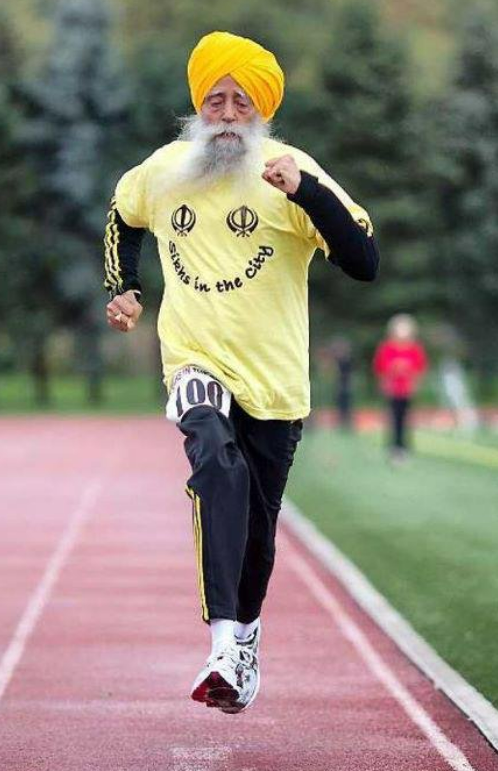A Hero’s Journey Ends on a Quiet Village Road
India and the world are mourning the heartbreaking loss of Fauja Singh, the revered centenarian marathon runner who inspired millions across the globe. At the age of 114, Singh—fondly known as the “Turbaned Tornado”—tragically died on Monday in a hit-and-run incident near his native village of Beas in Punjab, India.
According to local police, Singh was walking along a quiet rural road when an unidentified vehicle struck him and fled the scene. He was rushed to Shrimann Hospital in Jalandhar, where he succumbed to severe head and rib injuries. The tragedy has shocked the nation and beyond, as tributes pour in for a man who defied time, pain, and personal tragedy to become a global icon of endurance and willpower.
A Runner Born in Adversity
Born in 1911 in rural Punjab, Fauja Singh’s early life was one of hardship. He could not walk until the age of five due to weakness in his legs. But despite a difficult childhood, Singh rose to become one of the most celebrated amateur athletes of the 21st century. After moving to London in his 80s following the deaths of his wife and son, Singh found a new purpose in running.
Remarkably, he took up marathon running at the age of 89. Within just a few months of training, he completed his first marathon. From that moment forward, running became a source of healing, joy, and identity. “Running showed me kindness and brought me back to life by making me forget all my traumas and sorrows,” Singh said in a 2013 interview with CNN.
Record-Breaking Runs Without Official Recognition
Singh completed nine marathons in total, including his personal best of five hours and 40 minutes at the 2003 Toronto Waterfront Marathon. In 2011, he became the first 100-year-old to finish a full marathon, once again in Toronto, clocking in at eight hours, 11 minutes, and six seconds.
Though widely acknowledged as the world’s oldest marathon runner, Singh never earned a Guinness World Record due to the lack of a birth certificate—an issue common in early 20th-century rural India. Nevertheless, his accomplishments were recognized and celebrated worldwide. Britain’s Queen Elizabeth even sent him a personal letter on his 100th birthday.
The Man Behind the Legend
Beyond the race track, Singh was a symbol of spiritual strength, positivity, and humility. His ever-present smile and brightly colored turban became a global image of inspiration. Even in his 100s, he kept to a simple lifestyle—light vegetarian meals, early morning walks, and daily spiritual reflection.
In 2012, Singh carried the Olympic torch ahead of the London Games, further cementing his place as an ambassador of peace and perseverance. He retired from competitive running in 2013 after completing a 10-kilometer race in Hong Kong, though he never truly stopped running—for pleasure or for life.
A Nation and the World Mourn
Indian Prime Minister Narendra Modi led the tributes, calling Singh “an exceptional athlete with incredible determination.” Social media across India and the diaspora lit up with sorrow, admiration, and gratitude for a man whose spirit never aged.
On Tuesday, police arrested a suspect based on CCTV footage. A case has been filed for negligent driving and culpable homicide not amounting to murder.
Though he is no longer with us, Fauja Singh leaves behind more than a legacy of medals—he leaves a legacy of unbreakable will, humility, and the unshakable belief that it’s never too late to chase your dreams.
“I am very fond of my running shoes, I absolutely love them,” he once said at age 102. “I can’t imagine my life without them.”
Today, those shoes are still, but his spirit runs on—eternally.








